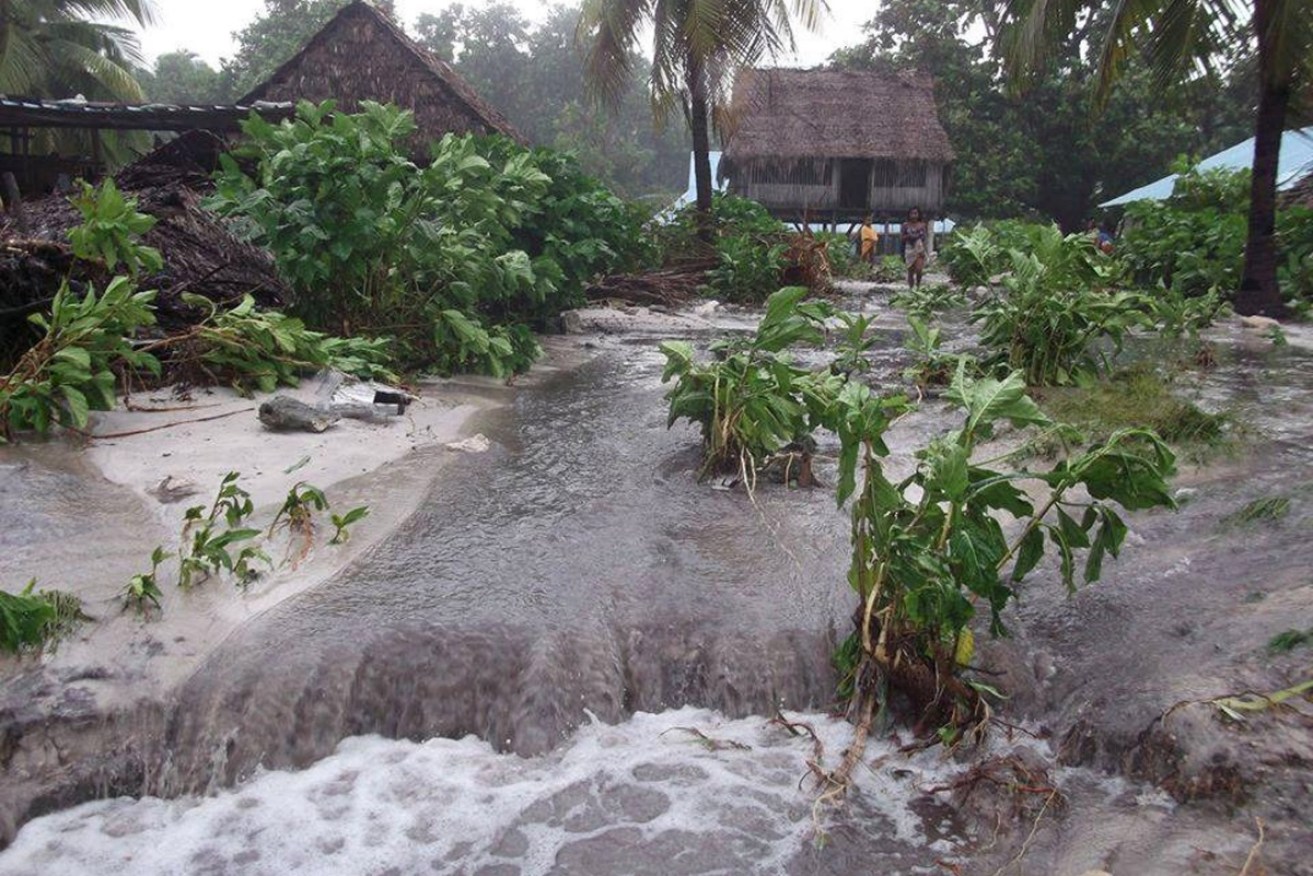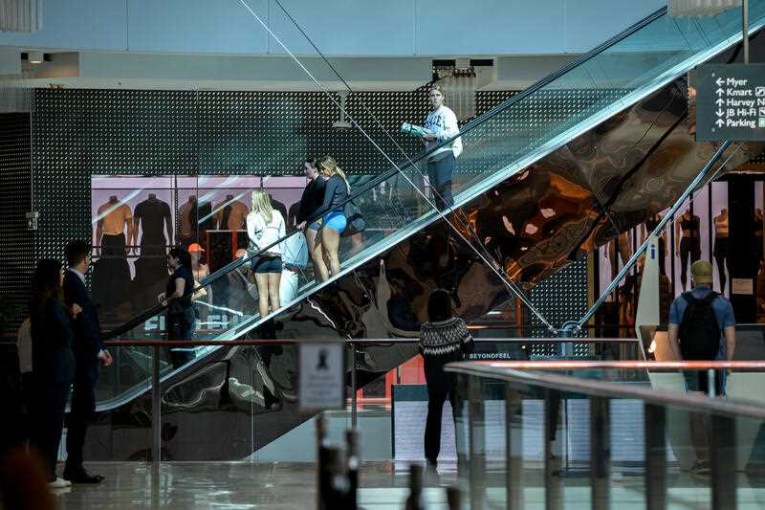‘It is always about the cash’: Minister’s insult is about avoiding a conversation


Kiribati Is the most vulnerable of nations to climate change. Photo: Getty
Environment Minister Melissa Price stands accused of treating a Pacific leader and former Nobel prize nominee like a teenage child relentlessly on the scrounge for a few dollars.
Labor frontbencher Pat Dodson was part of a group dining this week in a Canberra restaurant with Anote Tong, the former president of Kiribati, when Ms Price allegedly wandered over and haughtily declared: “I know why you’re here. It is for the cash. For the Pacific, it is always about the cash. I have my chequebook here. How much do you want?”
Mr Dodson wrote to Ms Price and Prime Minister Scott Morrison demanding she apologise to Mr Tong for the insult. Ms Price has denied making the remarks and is now also accused of misleading Parliament over the affair.
Other people present at the dinner reportedly supported Mr Dodson’s claim.
She drew first blood
But if she did say it, would Ms Price be right? Are Pacific nations always hassling Australia with their begging bowls?
The fact is, Ms Price was intent on embarrassing Mr Tong before he got in first.
He has previously called Australia “selfish” for favouring coal over effective climate change policy. By making his visit a crude joke about cash, she has successfully deflected attention away from Mr Tong’s actual mission to Canberra: To lobby our politicians, once again, to do more on mitigating climate change.
It’s a discussion Ms Price perversely, as environment minister, does not want to have – certainly not in public.
Kiribati, an equatorial nation of about 30 coral atolls and islands and with a population of less than 117,000, sits about two metres above sea level. The tide there already seeps through many a door. It’s the most vulnerable of nations to climate change. But it isn’t alone.
What’s really at stake
A series of reports from international aid group Caritas found that thousands of Pacific people across the region faced “threats to their wellbeing, livelihoods and, in some places, their very existence” due to rising sea levels, king tides and natural disasters brought about by climate change. Already these nations are suffering rising water tables, salt seeping into groundwater, poisoned fish and dying mangroves.
And as journalist Peter Hartcher noted two weeks ago in The Sydney Morning Herald, citing a UN Millennium Development Goals update, the Pacific region on current trends will soon be the most deprived on Earth, overtaken by Africa in terms of security and prosperity.
Where Ms Price’s vulgarity has some basis in truth lies in the fact that Australia, up until last year, provided six times as much aid to the region than any other country, including New Zealand and China, according to the Lowy Institute. (Although China is seen to be growing its influence in the Pacific via loan projects that the nations cannot afford.) Out of 60 donors to the region, Australia provides half.
Where does the money go?
According to a 2016 report from the Australian Institute of International Affairs, the Indo-Pacific region remains the focus of the Australian aid program. In 2016-17, the Pacific region received $910 million, south-east Asia $657 million, south and west Asia $217 million, and Africa $52 million. Papua New Guinea received about half of all aid to the Pacific region.
In May, the federal government froze the foreign aid budget at $4.2 billion a year, but vowed to lift spending on the Pacific region to $1.3 billion, in part to fund a new communications cable in Papua New Guinea and the Solomon Islands.
In the past seven years, according to the Lowy Institute, Pacific aid had dropped by $300 million despite the risk that a sinking neighbourhood poses to Australia, namely thousands of climate refugees. The fact that funding is now restored to 2011 levels is thought to be more about contending with a Chinese encroachment than caring about Pacific islanders.
Significant investment in mitigating climate change is reliant on Labor gaining government, and living up to its rhetoric.
Meanwhile, Mr Tong awaits a polite conversation with somebody who gives a damn.








